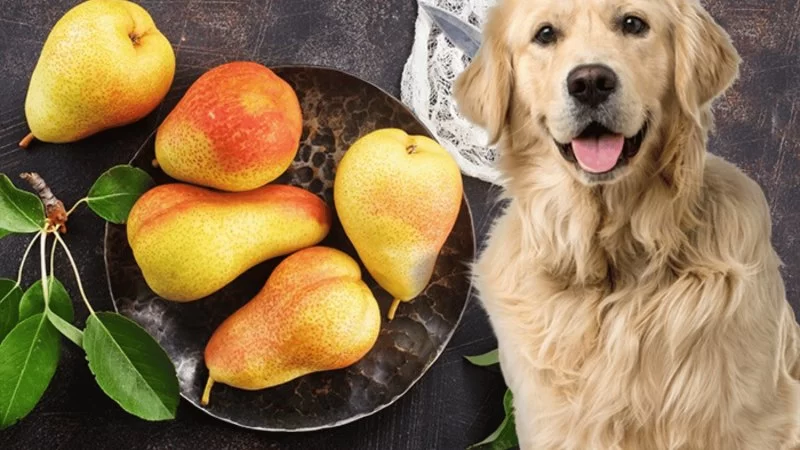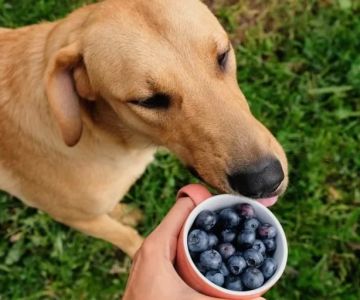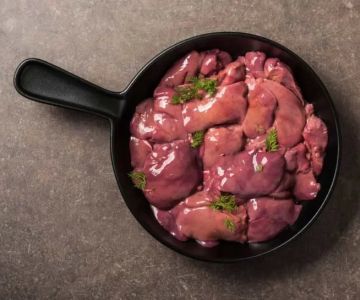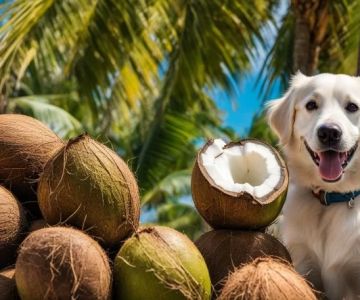- can-dogs-eat-pears-safe-or-not
- nutritional-value-of-pears-for-dogs
- how-to-feed-pears-to-dogs-safely
- real-case-what-happened-when-a-dog-ate-too-much-pear
- vets-perspective-on-dogs-and-pears
1. Can Dogs Eat Pears – Safe or Not?
Yes, dogs can eat pears in moderation, and in most cases, they’re perfectly safe. Pears are a juicy, sweet fruit packed with vitamins and fiber, making them a potentially beneficial treat. However, just like any human food, there are certain precautions to consider before offering pears to your furry friend.
While fresh pears can be a healthy snack, canned pears, pear-flavored syrups, or anything with added sugar and preservatives should be strictly avoided. Also, dogs should never be allowed to chew on the seeds or the core, as pear seeds contain traces of cyanide—a substance toxic to dogs if consumed in large quantities.
2. Nutritional Value of Pears for Dogs
Pears offer several nutritional benefits when included in a dog’s diet in small quantities. They are rich in:
2.1. Dietary Fiber
Fiber aids digestion and helps in regulating your dog’s bowel movements. Pears contain both soluble and insoluble fiber, which can contribute to gut health.
2.2. Vitamins
Pears are a natural source of vitamins C and K. Vitamin C supports immune function and helps reduce inflammation, while Vitamin K is important for bone health and blood clotting.
2.3. Antioxidants
Antioxidants found in pears help protect cells from oxidative damage. This can contribute to long-term health, especially for aging dogs.
2.4. Low Calorie, Low Fat
For dogs struggling with weight management, pears are a low-calorie, fat-free option. Still, it’s important to control portion size, as too much fruit can lead to digestive upset or unwanted sugar intake.
3. How to Feed Pears to Dogs Safely
Feeding your dog pears is more than just slicing and serving. Preparation matters to ensure your dog enjoys the treat without any risks.
3.1. Remove the Core and Seeds
Always remove the core and all seeds before giving pears to your dog. As mentioned, pear seeds contain cyanogenic compounds, which can be harmful when accumulated in the body.
3.2. Serve in Small, Bite-Sized Pieces
Cut the pear into small, manageable pieces to prevent choking—especially for small or toy breeds. These should be no larger than a dog treat.
3.3. Fresh Is Best
Use fresh, ripe pears. Avoid overripe, fermented, or canned pears. These can contain high sugar levels or artificial additives that are not dog-friendly.
3.4. Start Slowly
If your dog has never eaten pears before, start with a small amount and observe any reaction over the next 24 hours. Look out for symptoms like vomiting, diarrhea, or changes in behavior.
4. Real Case: What Happened When a Dog Ate Too Much Pear
In 2022, a pet owner from Chicago shared their experience online after their Labrador, Max, ate an entire pear tree’s worth of fallen fruit in their backyard. Within hours, Max showed signs of bloating, restlessness, and vomiting. The vet diagnosed him with gastrointestinal distress due to fiber overload and mild fermentation of the fruit in his stomach.
Fortunately, Max recovered quickly after a day of fasting and hydration, but the vet emphasized the importance of supervising dogs around fruit-bearing trees. This real-life incident highlights why moderation—and awareness—is critical when feeding dogs any fruit, including pears.
5. Vet’s Perspective on Dogs and Pears
According to veterinary professionals at Hidden Brook Veterinary, pears can be a nutritious and enjoyable treat for dogs when served properly. However, they caution pet parents to use fruits as occasional supplements—not replacements—for a balanced diet.
5.1. Individual Tolerance
Just like people, dogs can have unique sensitivities. Some may be allergic or intolerant to certain fruits. Always consider your dog’s overall diet, health history, and age before introducing new treats.
5.2. Tailored Advice Matters
If you're unsure whether pears are a good fit for your pet, book a nutritional consultation at Hidden Brook Veterinary. Our expert team can help you create a safe, personalized treat plan for your dog based on their breed, health status, and lifestyle.
5.3. Hidden Risks Beyond Pears
Some owners may generalize that all fruits are healthy for dogs. However, grapes, raisins, cherries, and certain citrus fruits can be toxic. It’s essential to double-check before introducing any new food. Our clinic routinely guides pet parents through what’s safe—and what’s not—based on current veterinary research.












